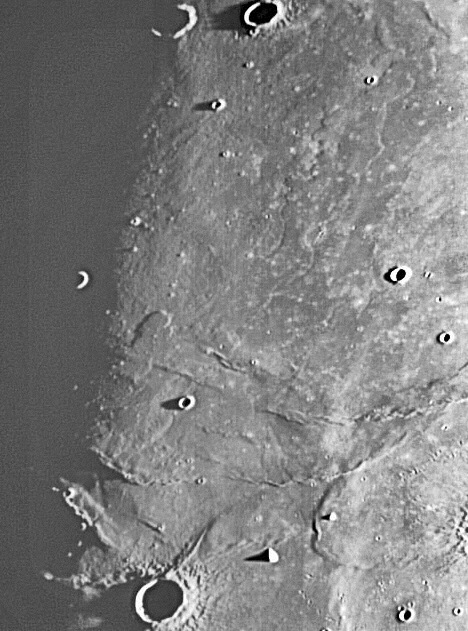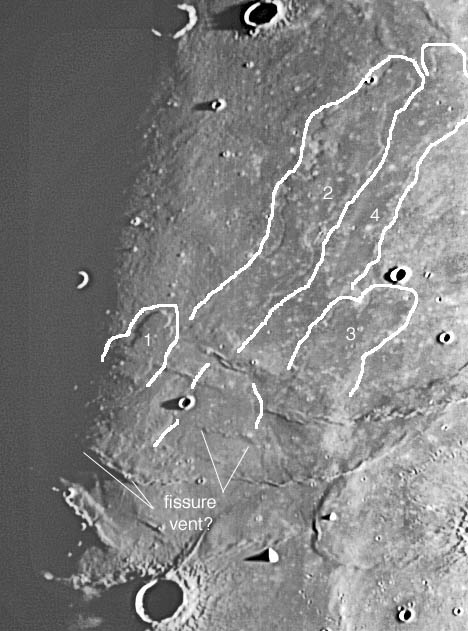Difference between revisions of "April 26, 2005"
| Line 7: | Line 7: | ||
<table width="85%" border="0" align="center" cellpadding="6" cellspacing="2"> | <table width="85%" border="0" align="center" cellpadding="6" cellspacing="2"> | ||
<tr><td colspan="2" valign="top"><div align="center"> | <tr><td colspan="2" valign="top"><div align="center"> | ||
| − | + | <!-- Mouse style 1 --> | |
| − | + | {{HoverImage|LPOD-2005-04-26.jpeg|LPOD-2005-04-26b.jpeg}} | |
| − | |||
| − | |||
</div></td> | </div></td> | ||
</tr> | </tr> | ||
Revision as of 13:43, 18 January 2015
More Spectacular Flows in Imbrium
Image Credit: K.C. Pau |
|
More Spectacular Flows in Imbrium The lava flow in Mare Imbrium shown in a recent LPOD is the most conspicuous, but not the only flow, and certainly not the longest one. KC Pau has now provided yet another astonishing image of Imbrium lava flows. In this highly stretched image, flow #1 (see mouseover) is the flow shown previously, and #2 is a slightly older, and much longer one, that still has well-preserved margins. Flow #3 also has a identifiable margns, but #4 is only definable because of the texture difference to its right. Flows appear to emerge from two low ridges which may be the fissure vents that fed the flows. The lava flows are estimated from crater counts to be possibly only 2.5 b.y.old, much younger than most of the lava flows in Imbrium and elsewhere on the Moon. These flows have never before been photographed so distinctly from Earth! WOW! Technical Details: Related Links: Tomorrow's LPOD: A Busy Place |
|
Author & Editor: Technical Consultant: Contact Translator: A service of: |
COMMENTS?
Register, and click on the Discussion tab at the top of the page.


 Ap 15 Extreme Closeup of Flow #1
]
Ap 15 Extreme Closeup of Flow #1
]



